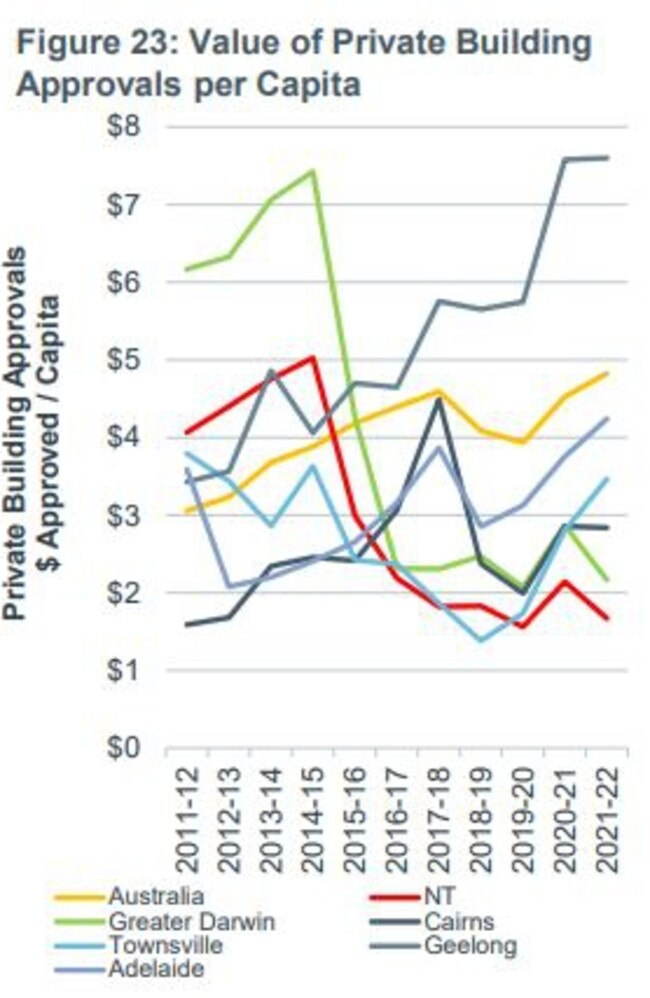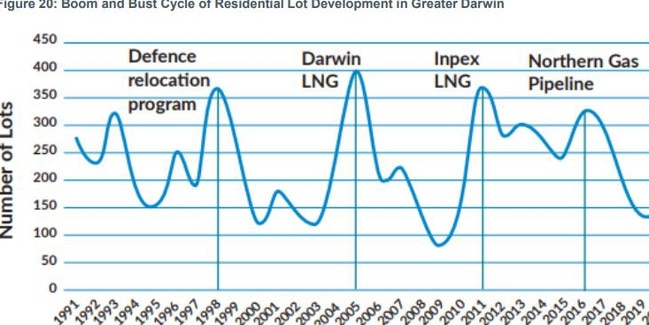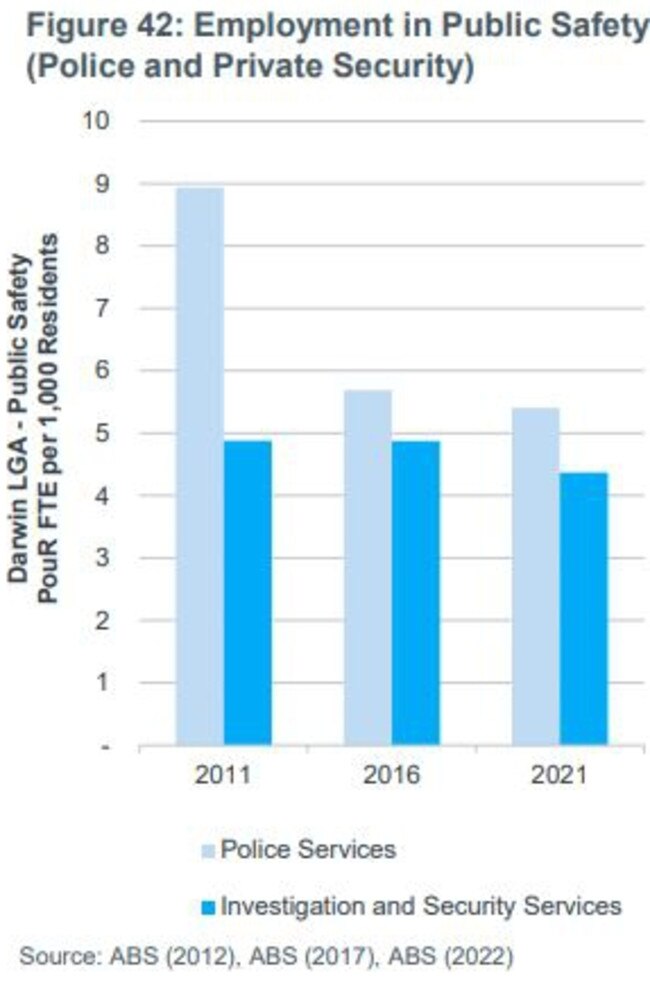A shock new report has identified NT economy’s $6bn shortfall
A shock new report to be released on Thursday has highlighted key weaknesses in the NT economy. Take a sneak peek here.
Business
Don't miss out on the headlines from Business. Followed categories will be added to My News.
Crime, population and costs of doing business have emerged as key factors holding back the Territory economy.
A new report commissioned by a peak Territory business group has taken a deep dive into the NT economy’s strengths and weaknesses — and identified substantial underperformance and a need for change.
Darwin Major Business Group commissioned economic consultants AEC to run a line through the Territory’s key economic drivers and compare them with similarly-sized centres in northern-Australia and nationally.
‘Over the Horizon Opportunities’ will be officially released on Thursday at Darwin Convention Centre by DMBG chair Steve Margetic and AEC senior economist Jonathon Pavetto in time for serious scrutiny by both major political parties.

The report said at the current rate, the Territory will fall way short of achieving the targeted $40bn economy called for by the Territory Economic Reconstruction Commission in its November 2020 report.
AEC projections put the shortfall at $6bn unless serious gas is applied to the economic engine.
Underpinning the report is the importance of private investment to the NT economy and the reduction in private capital during recent years.
Governments have done their best to counter that with a substantial increase in public building approvals.
Insurance is more expensive in the Territory than most other Australian centres except north-western WA and is a serious handbrake to business.
Average NT business premiums are at $3670 compared to $1930 across the rest of Australia.

Top-of-list of the 20 key findings was population and the limitations on growth by both retention and migration.
While the Territory’s birthrate over the past five years was about twice as high as the national average, more people continue to move interstate from the Territory than migrate here.
Dragging down the economy is workforce participation with rural and remote communities experiencing lower levels of economic involvement relative to Darwin, Alice Springs and Katherine.
Attracting a skilled workforce is a key challenge to be overcome, particularly in highly skilled high income positions like doctors and lawyers and 13 other identified professions.
Despite Darwin’s reputation as a garrison town and the huge Defence investment in the Territory since 2017, only 4.1 per cent of Australia’s defence workforce is based here - marginally better than Melbourne which doesn’t have military bases.
The historic importance of major projects is highlighted, with the boom and bust cycle of the Territory economy primarily influenced by major projects. With the exception of metal-based manufacturing, the Territory’s national contribution is negligible, with a $1.8bn trade deficit in manufactured products.

Crime against the person and property are key to liveability issues that dog the Territory. Compared to similar centres, crime in Darwin is astronomic, with data also showing a serious decline in the number of police per resident population.

Key business figures have welcomed the report, with Chamber of Commerce NT chief executive Greg Ireland acknowledging the importance of the data collected.
“The impact of using quality data to support better understanding and performance of the NT economy has been made very clear by this report,” he said.
“The report findings highlight the need to support increased development relationships between the NTG, business and our local community.”
Master Builders NT chief executive Ben Carter said boosting the rate of homeownership is vital to increasing economic growth.

“The Territory should be the easiest place in Australia to work, do business and build a life. Making it possible for more people to own their own home is fundamental to Darwin being a place of hope and opportunity.
“Increased home ownership will grow our population and that is fundamental to maximising the benefits of the billions of dollars being invested in defence infrastructure.
“More home ownership will mean that young people will see more of a future in their hometown and that new workers and their families will be able to put down roots that will tie them to Darwin.”
Civil Contractors Federation NT chief executive Tom Harris, said if key issues identified in the report are not addressed, the Territory will miss the targeted $40bn target.
“We need to now use the AEC data to focus energy into delivering economic growth that will drive the economy now and into the future,” he said.
“There needs to be collaboration and co-operation across all layers of government and community to ensure that we have a solid platform for growth, and we can secure a promising future for all Territorians.”





